Monday was really dedicated to introducing the course, each other, the university campus, and Lviv. In this post, I’ll focus on the course.
The second air raid
The day (Monday 9 June) kicks off with a relevant reminder of the current Ukrainian experience. The night before (my first in Lviv), there was an air raid alert from 03:00 to 5:30. I slept a generous four and a half hours because of it.
We had breakfast between 08:00 and 09:00. Around 9:02 another air raid alert, causing us to move to the shelter instead of the second floor.
The basement shelter has a fully functional classroom so lessons can continue during air raids. Ukraine adapts and ploughs on — with admirable perseverance and calmness, I find.
The placement test
Because each participant has a different background and pre-existing knowledge of Ukrainian, the teachers needed to assess our skills so they can place us in the best groups.
We had about an hour to do the written test. It wasn’t meant to be completed — just to see how far you’d get with a test that becomes increasingly difficult. It’s a bit like an IQ-test but for language proficiency. And boy, did I feel silly…
When the written test papers were put on my desk, I realised I had forgotten something important. I have been (casually) learning Ukrainian on Duolingo/Memrise for over three years, but these mostly teach recognition and a little bit of typing. And now, for the first time, I had to write Cyrillic by hand and draw words from memory without the visual cues from an app. Well, I was looking for a challenge and here was the first!
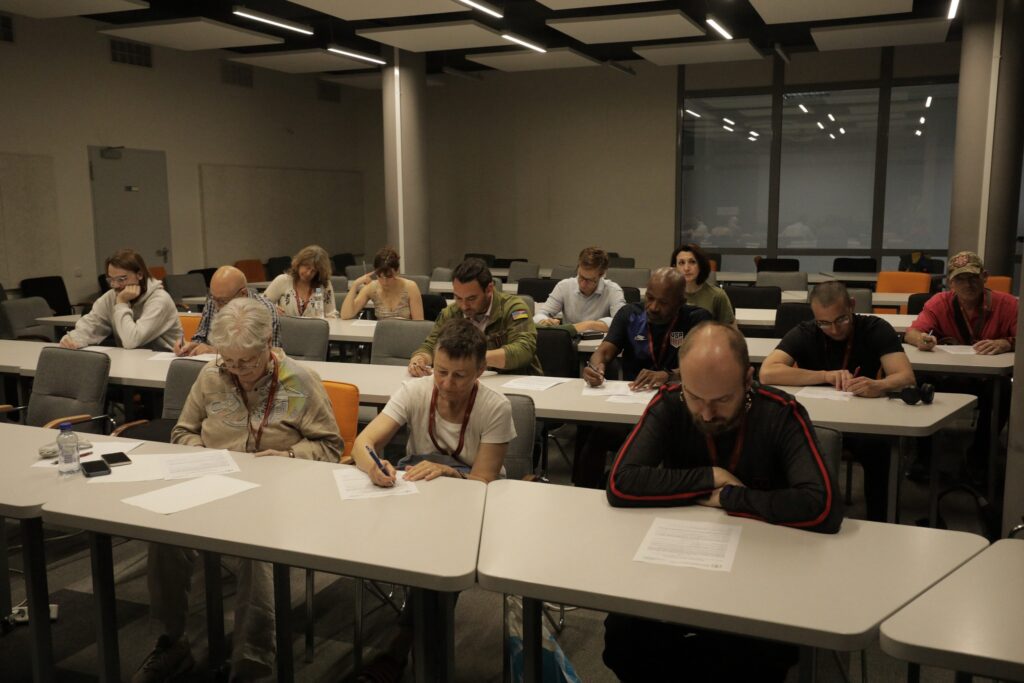
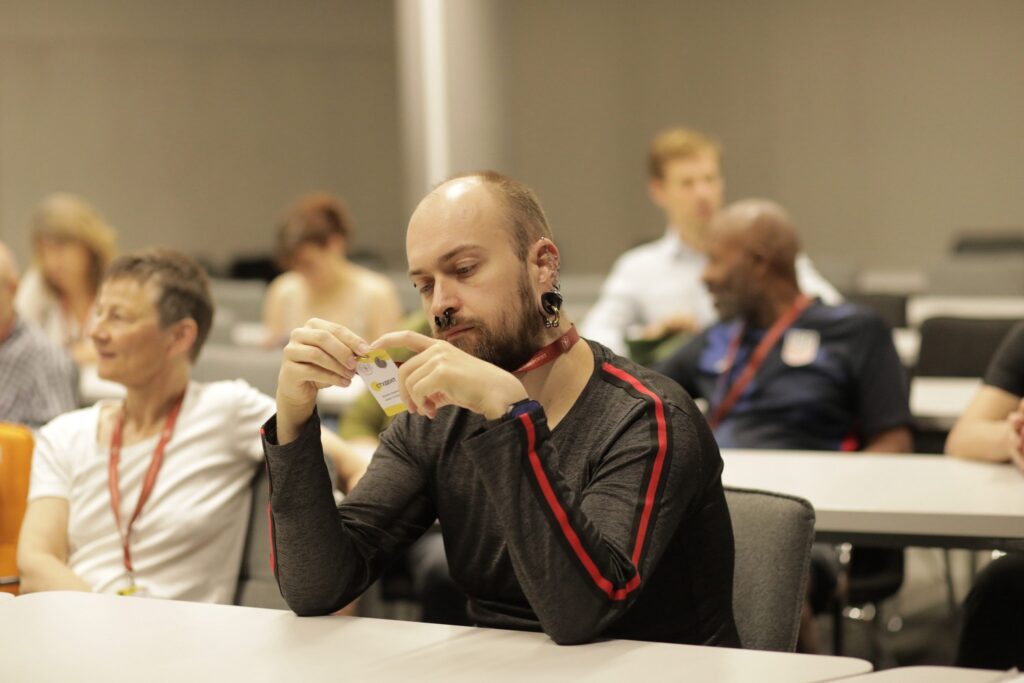
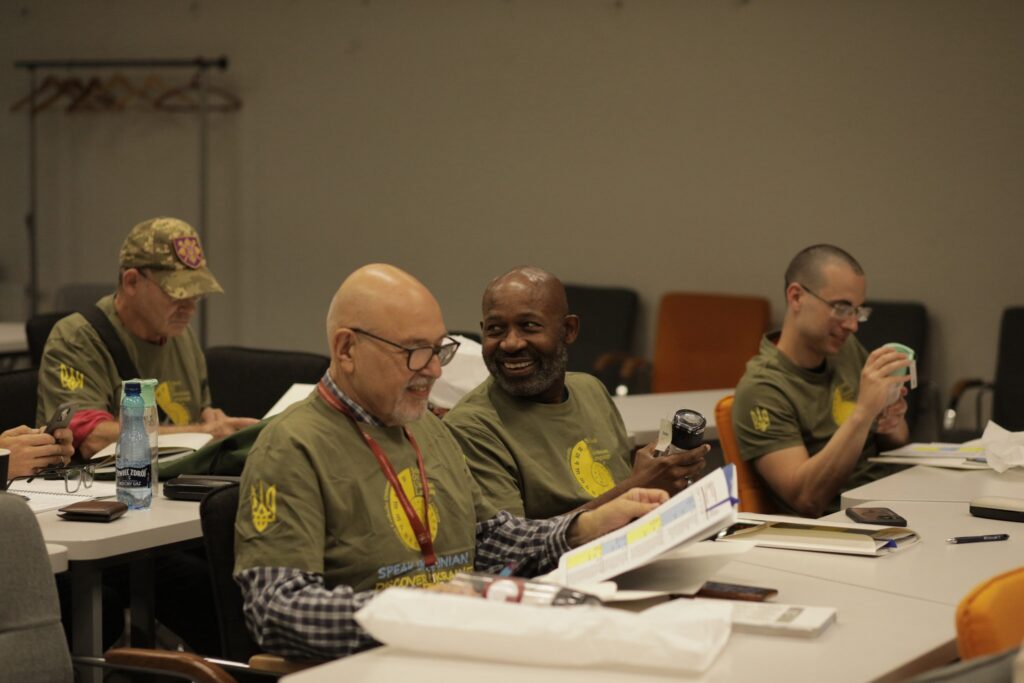
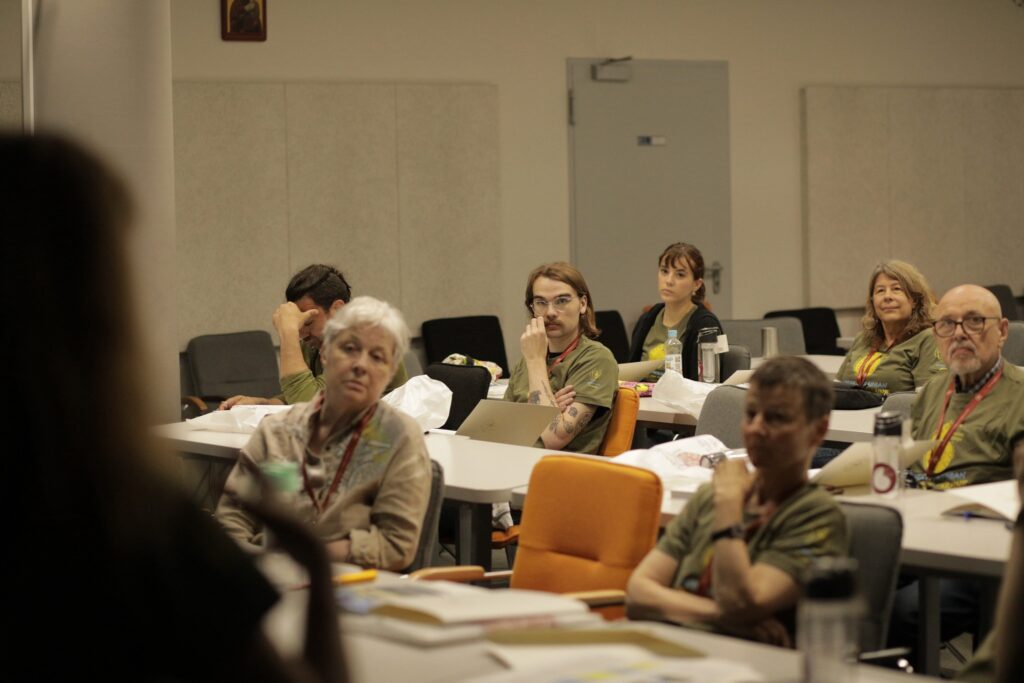
The interview
We were told we’d have interviews after lunch. So all students would gather in a class room and then students would be called one by one to have the interview in another room. I didn’t have to wait long for my turn…
Naïvely, I thought the ‘interview’ was just to chat with the students. You know: the organizers want to get to know a bit about us, and to understand what we want to get out of the course, to discuss the placement test results etc. This was true, but… as I entered the other room and saw a board of three (later four) teachers sitting in a row, it hit me: this interview was also another placement test.
The interview second placement test interview
So there I was, jumbling and looking for Ukrainian words. It took a few seconds to ‘reactivate’. Looking for words felt a bit like the day before — when I thought I lost my passport right when I needed it, only to find it right where I left it. A small conversation in Ukrainian occurred and I suppose I held my own. I misconjugated and misgendered probably everything, but the effort was sincere and I could get a message across. Apparently my pronunciation is already quite decent.
They asked me about other languages I spoke (some high school French and German). I jokingly offered to switch to French. In response, one of the teachers gave a very competent and fast response in French. So I quickly withdrew the statement that I knew French… I should’ve expected it’s dangerous to taunt teachers on a language learning course — there may be polyglots lurking among them.
Curiously, they asked if I also had any previous knowledge of West-Slavic languages. (No, not really.) Apparently, there was something about the structural mistakes I made (or the words that I concocted) on the written test, that gave my Ukrainian a slightly West-Slavic flavour. I’m pleased to hear there is method to my madness — now I just need to hear the right method.
The hard question — why?
The most difficult question I was asked all day was why I want to learn Ukrainian. The truth is: I don’t exactly know.
The most logical answer I could give was that I wish to show solidarity with the Ukrainian people. But it’s quite the stretch to go from ‘solidarity’ to ‘traveling to a country at war to learn their language’. So it’s more than solidarity. There’s something about Ukraine, ever since Euromaidan in 2014, that makes me feel very deeply that this country will be crucial to the future of the EU, the free world at large and our way of life. History is being made here and it’s about more than Ukraine.
There’s more than just the geopolitics, though. I felt drawn to Ukraine, compelled to visit it, to encounter whatever or whomever I need in my life, without fully understanding why, what or whom. And indeed, I’ve got to enjoy so many interesting people, places and experiences — and I’ve barely begun!
Looking back
One might think that an air raid alarm, the sleep deprivation and test anxiety would make for a rather intense day. But in truth, it was quite calm and pleasant. The many conversations were lively, the company entertaining, and there was plenty of laughter.
After the interviews, we gathered to visit Lviv’s city center for a guided tour. I’m very excited to share more about this beautiful city — in another upcoming post, so stay tuned!
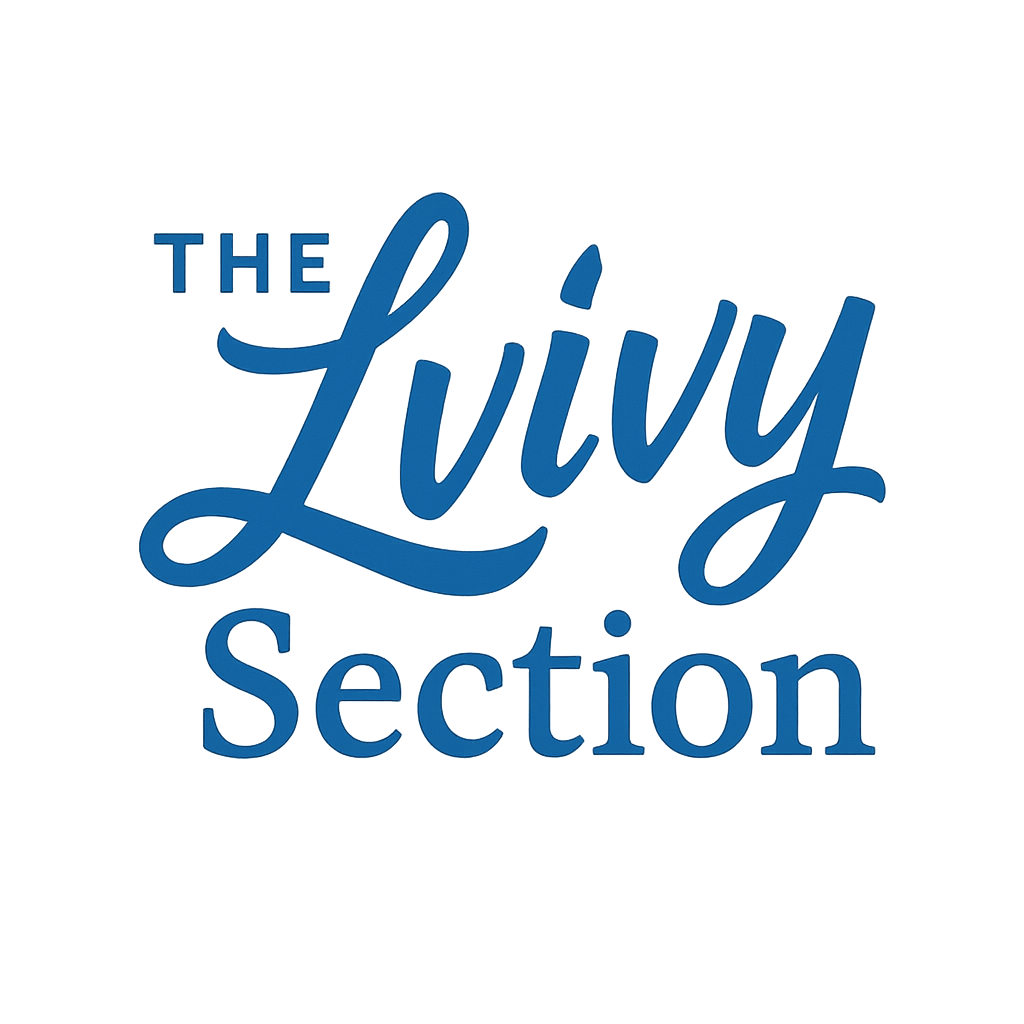
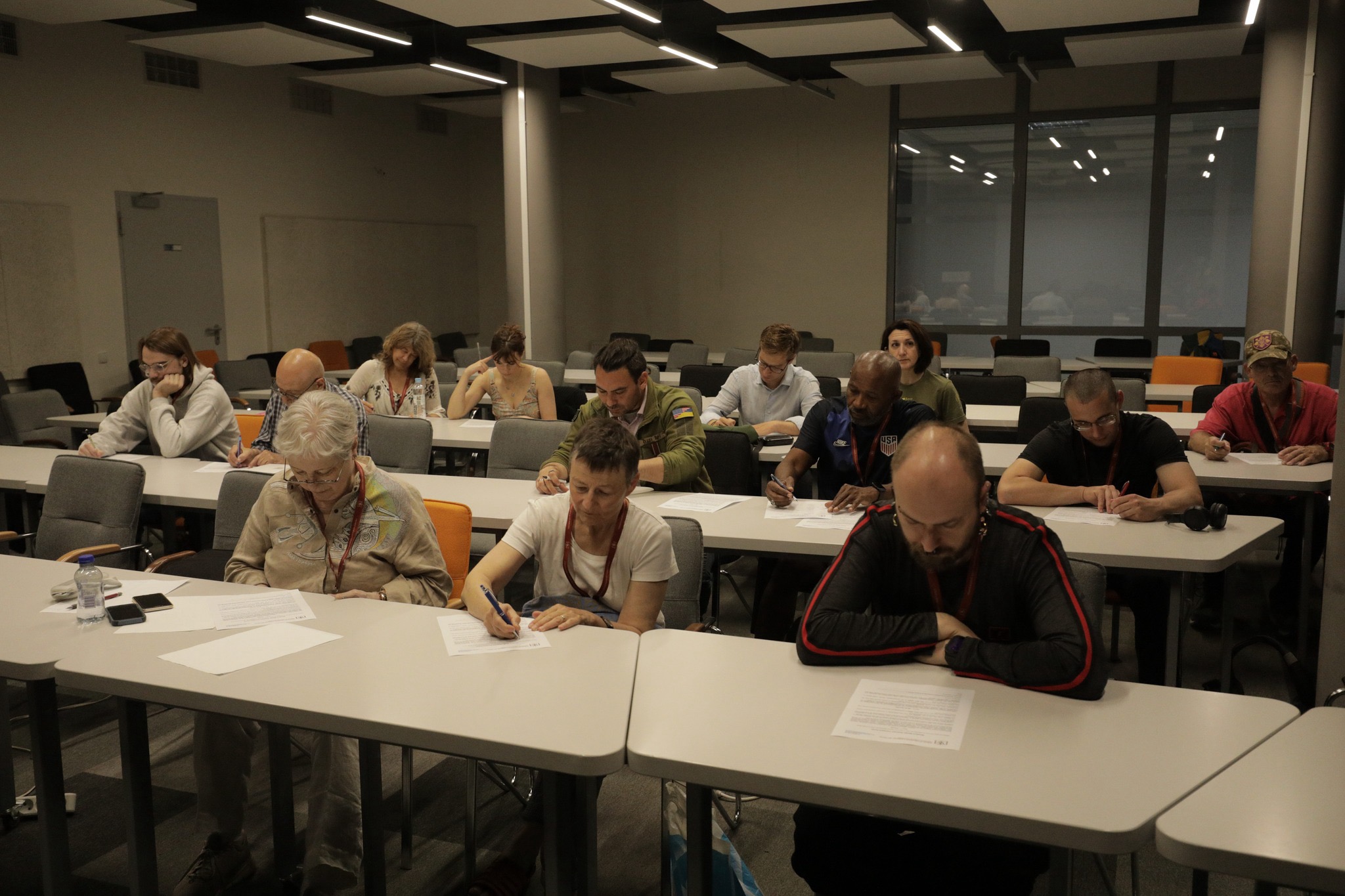
What a vivid way of telling about your experience. I was very curious to hear about your experiences in Lviv. You are telling as if I am there next to you. It was a good question you were asked: Why are you doing this, not only learning the language that is far from your own language, but also go to Ukraine in wartime. I guess that what you told is right: to stay next to the Ukrainians who are defending democracy, not only their country and life, but also our common European way of life. Thank you for your story. Have a good time Wanno.